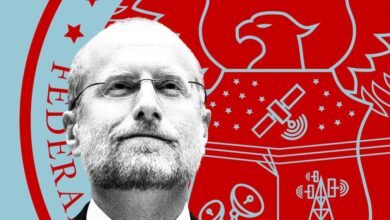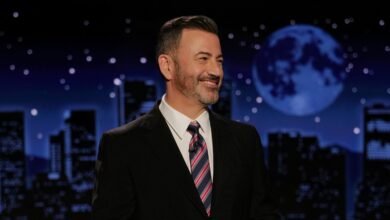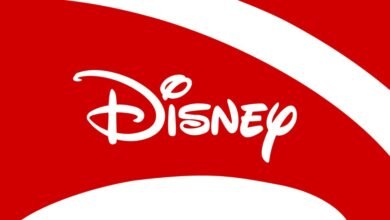Jimmy Kimmel Live Pulled Indefinitely After FCC Threat Over Charlie Kirk Joke

▼ Summary
– Disney and ABC have pulled Jimmy Kimmel Live! off air indefinitely after FCC chairman Brendan Carr threatened to pull broadcast licenses over Kimmel’s comments about Charlie Kirk’s killer.
– Carr suggested that Kimmel’s remarks constituted “news distortion,” which he claims violates FCC rules and justifies license revocation for stations airing the show.
– Nexstar, a major TV station owner, pre-empted airings of Kimmel’s show and is awaiting FCC approval for a $6.2 billion merger with Tegna, which Carr could influence.
– Carr, a Trump appointee, has a history of leveraging FCC authority to pressure media companies over perceived bias against conservatives, including previous threats against Disney.
– The situation highlights tensions between free speech protections and broadcast regulation, with Carr advocating for stricter enforcement of public interest standards.
The abrupt and indefinite suspension of Jimmy Kimmel Live has ignited a firestorm of controversy, following direct intervention from FCC Chairman Brendan Carr. Disney and ABC made the decision to pull the popular late-night show after Carr threatened to revoke the broadcast licenses of any station airing the program. This drastic move came in response to a joke made by Kimmel regarding the individual charged with the murder of conservative commentator Charlie Kirk.
Television giant Nexstar announced that its local ABC affiliates would preempt the show, a decision made just hours after Carr’s warning. As one of the largest station owners in the U.S., Nexstar’s compliance carries significant weight. The company is also awaiting regulatory approval from the FCC for a pending $6.2 billion merger with Tegna, a factor that may have influenced its swift response.
In an interview with MAGA influencer Benny Johnson, Carr suggested that stations airing ABC could face license revocation. He accused Kimmel of distorting the news by implying that Kirk’s alleged killer was linked to conservative circles. Carr offered Disney a choice: take action against Kimmel or face intensified regulatory scrutiny. “These companies can find ways to take action on Kimmel or there is going to be additional work for the FCC ahead,” he stated.
A Trump appointee, Carr has built a reputation for targeting media outlets he perceives as biased against conservatives. He has previously used the FCC’s merger approval process to pressure companies like Paramount and Skydance into accepting oversight from so-called “bias” watchdogs. He also threatened to investigate Disney over its diversity initiatives.
The context of Kimmel’s remark stems from a highly charged political climate. Following Kirk’s death, online speculation swirled regarding the shooter’s ideology. While some Republicans pointed to left-wing motives, others suggested ties to far-right groups. Kimmel briefly addressed this in his monologue, criticizing what he called the “MAGA gang” for attempting to distance themselves from the suspect.
Johnson characterized Kimmel’s comments as an outright claim that the assassin was a MAGA conservative, a interpretation Carr seized upon. He argued that the joke constituted “news distortion,” a violation of the public interest standard enforced by the FCC. Though the agency has rarely enforced such rules in recent decades, Carr insisted that stepped-up oversight is necessary.
It is important to note that Disney itself does not hold a broadcast license, which is why Carr directed his threats toward local affiliates. He urged these stations to reject content they believe fails to serve their communities, framing the issue as a matter of local responsibility rather than federal overreach.
Nexstar’s cooperation may be influenced by its desire to see the Tegna merger approved. Current FCC rules prevent any single entity from owning stations that reach more than 39% of U.S. viewers; the merger would push that figure to 80%. CEO Perry Sook has expressed confidence that the Trump-appointed FCC leadership will relax these regulations.
Carr has pointed to other media changes as evidence that his tactics work, citing the defunding of NPR and PBS, the retirement of Stephen Colbert, and personnel shifts at major networks. He framed Kimmel’s comments as a desperate bid for attention from what he called a “talentless” host.
The situation raises profound questions about free speech, regulatory power, and the relationship between government and media. While Carr insists he is upholding standards of fairness and accuracy, critics argue he is weaponizing the FCC to silence dissent and shape media narratives to fit a political agenda. The outcome of this standoff may set a new precedent for how broadcast content is regulated, or censored, in the United States.
(Source: The Verge)







